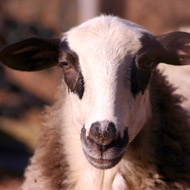
Parasite groups issue warning to sheep and cattle producers
Parasite groups are warning farmers that a dry summer may not have killed off liver fluke in cattle and sheep.
The warning comes from the Sustainable Control of Parasites in Sheep (SCOPS) and Control of Cattle Parasites Sustainably (COWS), who are urging farmers not to be complacent about liver fluke this autumn.
SCOPS sheep consultant Lesley Stubbings said: “This summer has been the hottest and driest on record in many parts of the UK. This means that, overall, the burden of liver fluke on pasture will be much lower than last season – but it is dangerous to assume this applies to all farms or even in all areas on a farm.
“Early diagnostic reports from labs and abattoir feedback in some areas suggest we must be careful. In a dry year, the infective stages of liver fluke will be concentrated around permanently wet patches, such as drinking points where there is moisture for snails, which of course is where animals congregate too.”
The experts say that it is even more important in a dry year to carry out a liver fluke assessment and that there will be a huge variation between farms. Tools available include specific blood tests, copra antigen tests and faecal egg detection tests.
A spokesperson for COWS says: “Taking action now and using these tools will avoid losses due to fluke in high-risk situations. Remember, on many farms where animals would normally be routinely treated, testing could help to avoid unnecessary treatments of animals that do not harbour liver fluke.
"This saves money and time and helps us protect the few medicines we have available to combat this parasite.”



 The RCVS has announced a new version of its 1CPD mobile app, with enhanced features for veterinary surgeons and veterinary nurses to record their continuing professional development.
The RCVS has announced a new version of its 1CPD mobile app, with enhanced features for veterinary surgeons and veterinary nurses to record their continuing professional development.